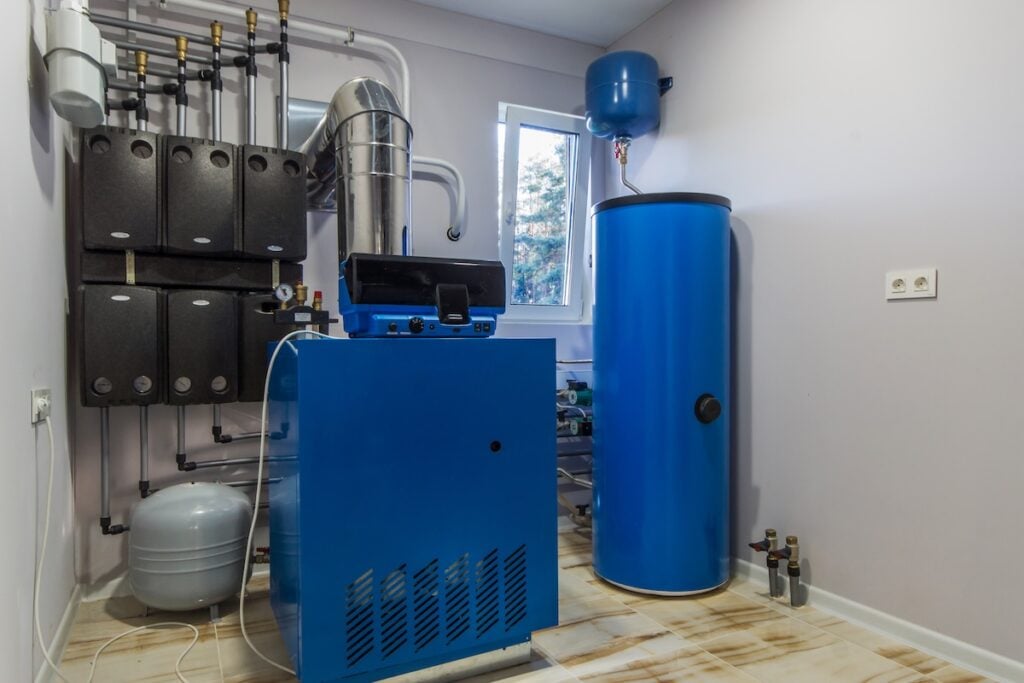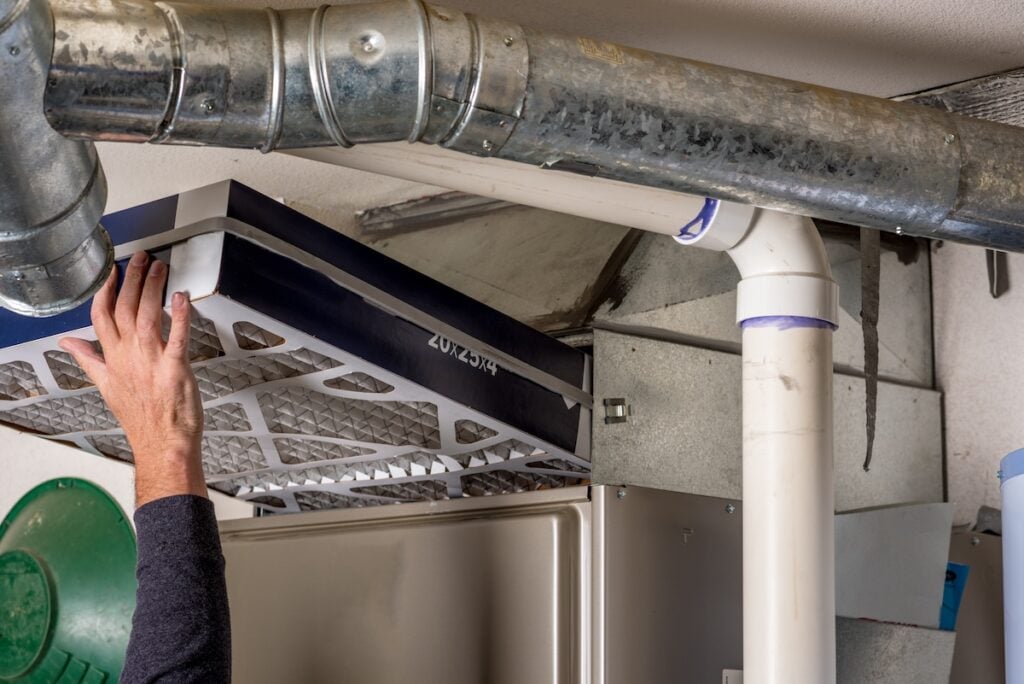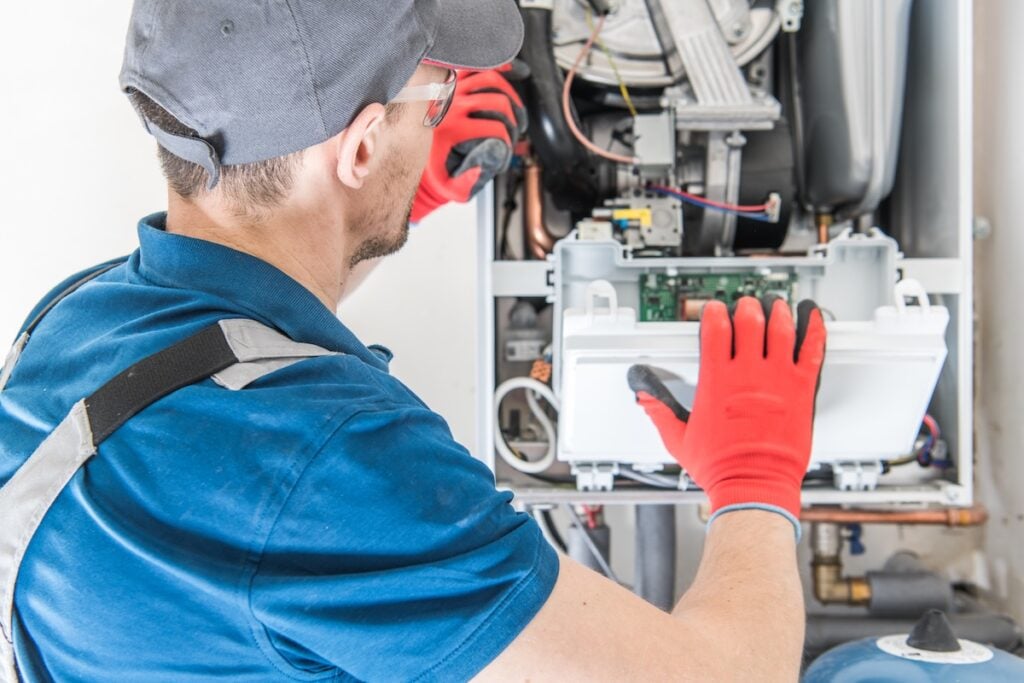How Long Does a Furnace Last? (2025)

When it comes to home comfort, one of the most common questions homeowners ask is, “How long does a furnace last?” The furnace is a vital component of any HVAC system, and understanding its life expectancy can help you plan for maintenance, repairs, or even replacement.
On average, the lifespan of a furnace is determined by several factors, including:
- Type of Furnace: Gas furnaces tend to last longer when properly maintained compared to electric models.
- Usage and Maintenance: The frequency of furnace repair and whether furnace filters are replaced regularly can either extend or shorten a furnace’s life expectancy.
- Installation Quality: A professionally installed furnace will perform more efficiently and last longer than one that isn’t properly set up.
Below, we’ll break down these factors, explore the signs your furnace may need replacement, and provide maintenance tips to get the most out of your investment. By the end, you’ll have a solid understanding of how to maximize both performance and lifespan.
⏳ What Is the Average Life Expectancy of a Furnace?
Understanding the Lifecycle of a Furnace
While many factors affect how long a furnace lasts, the average lifespan for a well-maintained natural gas furnace is between 15 and 20 years. However, this can vary depending on:
- Furnace Type: High-efficiency gas furnaces have become more durable, offering advanced features such as efficient heat exchangers that reduce wear and tear.
- Climate: Those living in colder climates may run their furnaces more frequently, which can lead to faster wear. Comparatively, regions with milder winters may see furnaces lasting longer.
Frequent furnace repair or neglecting regular maintenance can shorten this lifespan significantly. On the other hand, consistent servicing and replacing furnace filters regularly can add years to your system.

Gas Furnace vs. Other Options
Natural gas furnaces are highly regarded for their energy efficiency and longevity. Compared to oil or electric furnaces, gas systems typically feature fewer moving parts, leading to less wear and tear. However, each type has its considerations:
- Gas: Long lifespan, highly efficient.
- Electric: Shorter lifespan, may suit specific climates.
- Propane or Oil: Generally less efficient and shorter-lived when compared to natural gas furnaces.
⚠️ Signs You May Need to Replace Your Furnace
How do you know when it’s time to replace your furnace? Pay attention to these critical warning signs:
- Higher Energy Bills: If your energy bills have been climbing despite no change in usage, your furnace may have lost its initial energy efficiency. Older systems have to work harder to heat your home, leading to increasing costs.
- Frequent Furnace Repair Needs: An occasional repair or two is normal. However, if you find yourself contacting your HVAC technician frequently, this could indicate that components such as the heat exchanger, blower motor, or thermostat are wearing out simultaneously.
- Uneven Heating: Are certain rooms feeling chilly while others are too warm? Over time, aging furnaces can struggle to distribute air evenly through your home.
- Strange Noises: Banging, rattling, or squealing noises are all signs of internal problems, often caused by failing parts that compromise performance.
- Natural Gas Furnace Age: If your gas furnace is approaching or exceeding 15 to 20 years, it’s a good idea to start planning for furnace replacement.
👍 How to Extend the Life of Your Furnace

Regular Maintenance
One of the easiest ways to extend your furnace’s life is with regular maintenance:
- Schedule annual tune-ups with your HVAC professional to ensure all components are functioning correctly.
- Clean and check your heat exchanger for any signs of cracks or wear.
Replace Furnace Filters Regularly
A clogged or dirty filter forces your furnace to work harder, straining the system. Change your furnace filters every 1 to 3 months to maintain proper airflow and peak energy efficiency.
Address Repairs Promptly
Small issues, like a malfunctioning thermostat or a minor noise, can escalate into major problems if left unattended. Address furnace repairs quickly to prevent further damage.
Ensure Proper Installation
A furnace that is improperly installed will never perform as efficiently as it should. Partnering with experienced HVAC professionals ensures your system is configured for optimal efficiency and longevity.

✅ Furnace Replacement Process
- Assess Your Needs: Evaluate your current furnace’s efficiency, heating output, and repair history. If problems persist and your furnace is aging, replacing it may save money in the long term.
- Choose the Right Furnace: Work with your HVAC professional to select a system that fits your home’s size and layout. Look for energy ratings, heat exchangers built for efficiency, and models designed for low maintenance.
- Professional Installation: A proper installation ensures your new furnace performs reliably for years. Technicians will test the system for energy efficiency and check that it aligns with your home’s ductwork.
🤔 Air Conditioning and HVAC Considerations
When replacing a furnace, it’s often beneficial to assess the rest of your HVAC system, including air conditioning units. Matching your furnace and AC system ensures balanced performance and long-term energy savings.
⭐️ Why Monarch Heating and Cooling Is the Right Team for You
At Monarch Heating and Cooling, we specialize in helping homeowners like you achieve year-round comfort and peace of mind. Our expert technicians are committed to ensuring your system is in perfect condition, from regular maintenance to new furnace installation. With decades of experience and a customer-first approach, we’re the team you can trust.
Don’t wait for your furnace to fail. Contact us today, and make sure your home is ready to weather every cold season ahead.
Need HVAC Service?
Contact the experts at Monarch Heating and Cooling.
Call us at (406) 213-8281!
